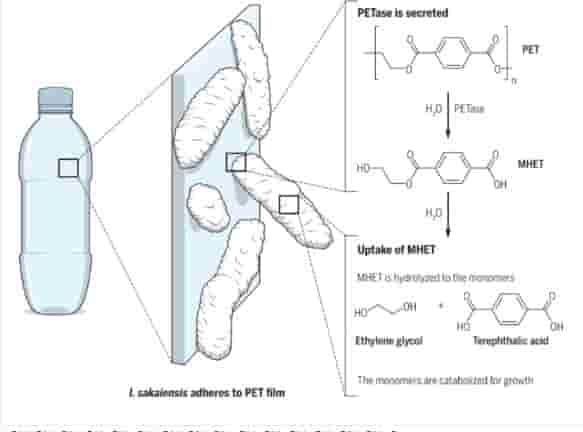Enzyme Helps Turn Plant Waste Sustainable Products - Arhive
New Enzyme Helps Turn Plant Waste Into Sustainable Products Enzyme Helps Turn Plant Waste Sustainable Products
Researchers discovered a new family of enzymes which pave the way towards converting plant waste into sustainable products such as nylon, plastics, chemicals, and fuels.Enzyme Helps Turn Plant Waste Sustainable Products
The new family of enzymes are active on the building blocks of lignin—one of the main components of plants. Lignin is found in abundance in plant cell walls where it is used for defense, structure, and nutrient water transport. Because of its prevalence in plant tissues, lignin is the largest reservoir of renewable, aromatic carbon found in nature.
For decades, scientists have been trying to find a way to break down lignin efficiently. Now, a research team from the University of Portsmouth, located in Portsmouth, England, found a way of releasing a key bottleneck in the process of breaking down lignin to its basic chemicals. The results provide a route to making new materials and chemicals such as nylon, bioplastics, and even carbon fiber, from what has previously been a waste product.Enzyme Helps Turn Plant Waste Sustainable Products
The discovery also offers additional environmental benefits. Creating products from lignin can reduce reliance on oil to make everyday products and offers an alternative to burning it, helping to cut CO2emissions significantly.
“It’s an amazing material,” said Professor McGeehan, director of the Institute of Biological and Biomedical Sciences in the School of Biological Sciences at Portsmouth. “Cellulose and lignin are among the most abundant biopolymers on earth. The success of plants is largely due to the clever mixture of these polymers to create lignocellulose, a material that is challenging to digest.”
Enzymes are biological catalysts that perform reactions, breaking down some of the toughest natural and human-made polymers. The team of scientists made the discovery while conducting experiments to engineer naturally-occurring enzymes in an attempt to find new ways of breaking down natural and man-made polymers, which can take centuries to degrade in nature.Enzyme Helps Turn Plant Waste Sustainable Products
The newly-discovered enzyme is a class of cytochrome P450, and it is classified as ‘promiscuous,’ meaning it is able to work on a wide range of molecules. The new cytochrome has the ability to degrade many different lignin-based substrates, making it possible to be engineered to be a specialist for a specific molecule.
“There is a long-standing phrase—you can make anything out of lignin except money—but by harnessing the power of enzymes, this is set to change,” said Sam Mallinson, a PhD student in structural biology at the University of Portsmouth. “Using advanced techniques, from X-ray crystallography at the Diamond Light Source synchrotron, to advanced computer modelling, we have been able to understand the detailed workings of a brand new enzyme system.”Enzyme Helps Turn Plant Waste Sustainable Products
Lignin is hard to digest, but these newly found enzymes appear to do the job efficiently. Once P450 has separated the lignin from the plant waste, the created polymer can be incorporated into new materials including carbon fiber, textiles, and plastics.
“We now have one of the most well-known, versatile, engineerable, and evolvable classes of enzymes ready to go as a foothold for biotechnology to move forward and make the enzyme better,” said Dr. Gregg Beckham from the U.

S. Department of Energy’s National Renewable Energy Laboratory.
The research team is currently collaborating with scientists from Franklin College of Arts and Sciences at the University of Georgia who found a way to speed up the evolution of this enzyme. Ellen Neidle, professor of microbiology at UGA, and her lab team helped create a method to accelerate the growth of a microorganism’s desirable traits. Together, the groups are working to discover and evolve even faster enzymes for turning lignin into high-value sustainable products.
“Lignin represents a vast potential source of sustainable chemicals, so if we can find a way to extract and use those building blocks, we can create great things,” McGeehan said.
Related Topics
-Researchers use bacteria to produce biodegradable plastic – Bacteria produce biodegradable plastic
